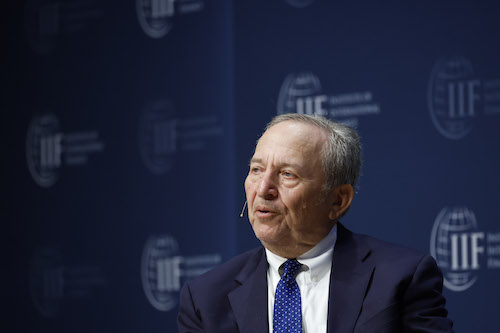Former Treasury Secretary Lawrence Summers said there’s no national-security justification for questioning the proposed takeover of United States Steel Corp. by Japan’s Nippon Steel Corp., amid a Biden administration review of the deal.
“There is no remotely plausible national-security rationale for questioning the Nippon-US Steel transaction,” Summers said on Bloomberg Television’s “Wall Street Week” with David Westin. “Japan is a staunch ally.”
Scrutiny of the $14.1 billion agreement by US officials is unlikely to end until late this year and may even extend into 2025, Bloomberg reported last week. President Joe Biden’s top economic adviser, Lael Brainard, said in late December that a review should be conducted because “it’s important to make sure there is serious scrutiny of these kinds of transactions from the perspective of national security and supply chain resilience.”
“This is a test for the Biden administration,” said Summers, a Harvard University professor and paid contributor to Bloomberg TV. The question is whether its industrial policy is truly based on seeking resilience, or serves as “a cloak for protectionist pandering to traditional industries — with no genuine national security rationale.”
Summers cited advantages to the agreement, which would create the world’s second-biggest steelmaker.

China Warning
“The result will be the infusion of more capital into the US steel industry,” he said, helping to lower steel prices as an input. Industries that use steel employ 100 times as many American workers as the steel industry itself does, he said. Summers also said production will continue to take place in the US.
Separately, the former Treasury chief said he came away from a visit to China this week with “substantial concerns about China’s growth prospects.”
China faces a major question about how to deploy excess savings, some of which have been channeled to “wasteful over-investment” in infrastructure and real estate. The risk is an overhang of bad debt that, amid a lack of demand and deflation, “gets more burdensome, and the whole thing cycles,” he said.
“That’s basically why Japan had a very weak generation of economic growth after 1990 and China is facing similar kinds of challenges,” Summers said. Still, he said “never count the Chinese out,” and noted Beijing has a large number of skilled bureaucrats.
US Taxes
Turning to the US, Summers cautioned that Washington will eventually have to raise taxes to address large recurring budget deficits and expanded spending responsibilities, and favored overhauling the estate levy in a future package.
“Ultimately, I suspect we’re going to have to increase taxes,” he said. “That’s not right now on the political agenda, but it will force its way onto the agenda in the next years, given arithmetic reality.”
With the US debt-to-GDP ratio above 100%, “there are big increases in debt service” costs coming, and spending requirements on items including defense are likely to rise, Summers said. “There are places where we’re going to need to cut government spending,” and there will be opportunities of raising revenue through non-tax means, such as spectrum auctions, he said. But there will in the end need to be “at least some increases in tax rates.”
Summers said Washington should “seriously look” at the estate law, “which now for so many successful people approaches being a voluntary tax,” given the special breaks and gimmicks that are used to avoid paying. He also reiterated the importance of tax-collection enforcement, and of boosting the corporate tax rate.

Follow us on social media: